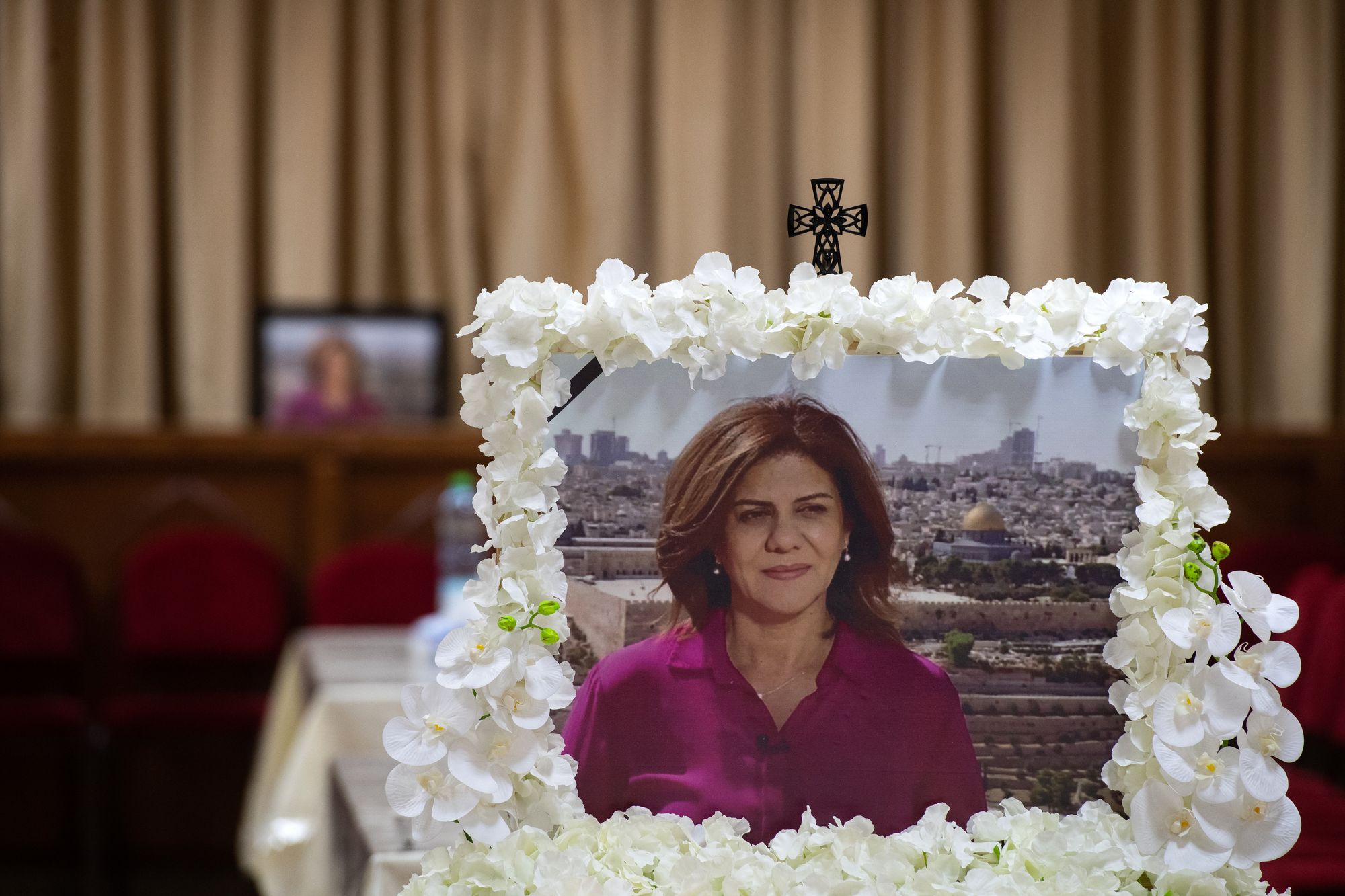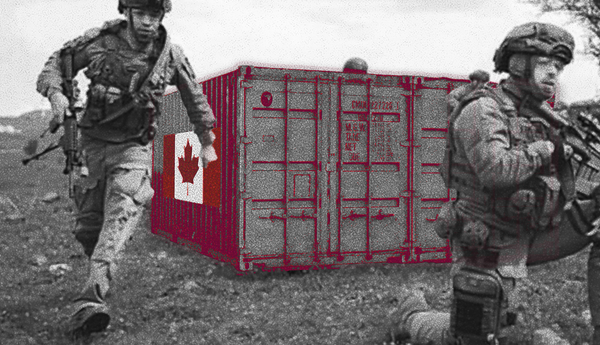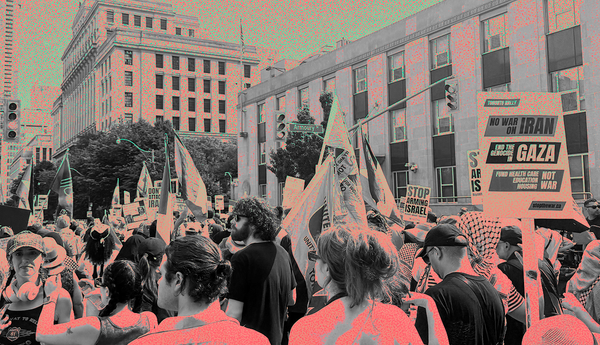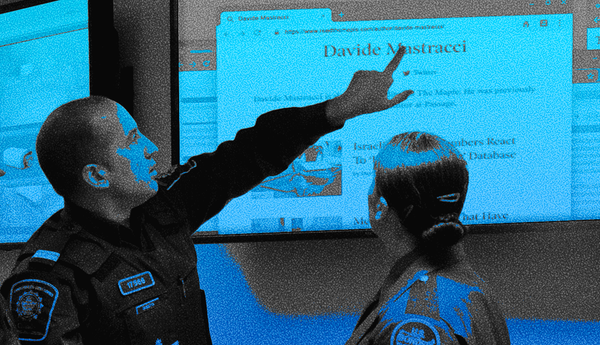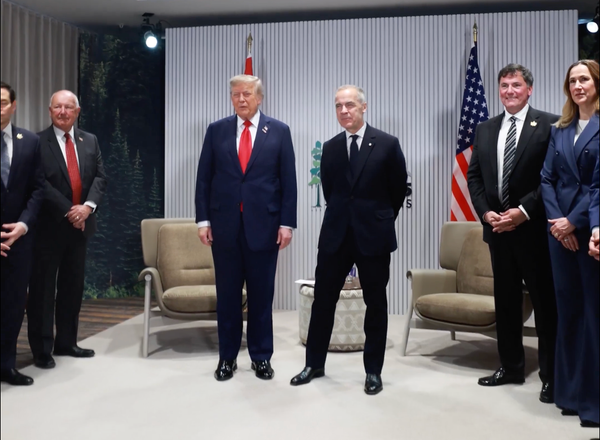Shortly after Israeli forces shot and killed Palestinian journalist Shireen Abu Akleh in May, senior Global Affairs Canada (GAC) staff received a report from Canada's diplomatic office in Ramallah noting that Israel has a long track record of failing to properly investigate when its security forces attack reporters.
The next day, May 12, a separate report from the Canadian Embassy in Tel Aviv acknowledged that Israel’s narrative claiming that a Palestinian gunman may have killed Abu Akleh had been “largely debunked.”
Despite the information in these reports, Foreign Affairs Minister Melanie Joly’s statements in the aftermath of Abu Akleh’s death excluded calls for an independent investigation, and the minister did not condemn Israel as the perpetrator.
The Maple contacted Joly’s office Monday requesting comment on the reports that were sent to senior GAC staff, but did not receive a response regarding the issues raised in the reports.
On May 11, the Qatar-based news outlet Al Jazeera (AJ) reported that Abu Akleh, a highly respected AJ reporter, had been shot and killed by Israeli forces while she was covering a military raid on the Palestinian city of Jenin. Abu Akleh was wearing a clearly marked press vest.
Citing eye witness accounts, AJ stated that the killing was a “blatant murder” in violation of international law, and that "the Israeli occupation forces assassinated in cold blood Al Jazeera’s correspondent in Palestine."
Subsequent investigations by CNN, The New York Times and other independent organizations confirmed that the bullet that killed Abu Akleh was fired from a location held by Israeli forces.
On Monday, the United States, Israel’s foremost international ally, claimed in a State Department investigation that the bullet was too damaged to draw a definitive conclusion, but admitted that the Israeli military was “likely responsible for the death.”
The U.S. also claimed there was "no reason to believe" that the killing "was intentional," a suggestion that Israeli human rights group B'Tselem condemned as part of an "organized whitewash meant to enable the continuation of the killings with impunity."
Documents obtained by The Maple through Access to Information legislation show that on the day Abu Akleh was killed, a report sent by the Canadian Representative Office in the Palestinian city of Ramallah pointed out that “there have been several instances of Palestinian journalists being injured while covering protests or [Israeli Security Forces] operations in the West Bank, Gaza and East Jerusalem in recent years.”
The report continued: “Israeli authorities have long faced criticism from human rights groups and media outlets for targeting journalists, as well for not thoroughly and transparently investigating incidents involving harm to media professionals and premises.”
The report also referred to the fact that both AJ and the Palestinian Authority President, Mahmoud Abbas, had stated that Israel’s killing of Abu Akleh was deliberate and targeted.
Explaining its own response to Abu Akleh’s death, the Canadian Representative Office said that both of Canada’s diplomatic missions in Israel and Palestine had issued tweets expressing shock at the killing “in line with likeminded [sic],” referring to Canada’s international allies from the United States, the United Kingdom and the European Union.
The report provided screenshots of tweets posted by the U.K. Ambassador to Israel Neil Wigan, the U.S. Ambassador to Israel Tom Nides, UN Special Coordinator Tor Wennesland and United Nations Resident and Humanitarian Coordinator Lynn Hastings, none of whom named Israel as the perpetrator or called for an independent investigation.
The Canadian Representative Office in Ramallah is led by diplomat Robin Wettlaufer, and serves as the de facto Canadian embassy in Palestine. The Maple contacted the office, asking if Wettlaufer authored the report herself, but did not receive a response by publication time.
According to the organization Reporters Without Borders, 144 Palestinian journalists have been hit by live ammunition, rubber bullets, stun grenades and tear gas fired by Israeli forces since the Great March of Return protests began in 2018.
The Canadian Representative Office’s report noted that an AJ reporter’s hand was broken while she was detained by Israeli police in the Palestinian neighbourhood of Sheikh Jarrah in East Jerusalem in May 2021, and that an Associated Press (AP) cameraman was shot in the foot while covering protests in Gaza in 2018.
“Both were clearly identified as “press” at the time of the incidents,” the report stated, also noting that Israeli airstrikes destroyed a tower housing AP and AJ offices in Gaza last year.
The report went on to say that Abu Akleh was a “highly experienced correspondent” who was “very popular and respected among Palestinians and in the broader [Middle East and North Africa] region.”
The report was sent to a Privy Council officer, GAC trade policy officers, senior advisors, GAC’s director of European relations, other diplomatic officials and analysts, senior communications staff, a regional security officer and GAC assistant deputy minister Sandra McCardell.
Despite the concerns raised in the report, Canada has refused to support an independent investigation into Abu Akleh’s killing by the International Criminal Court (ICC), instead calling for a “thorough” investigation, with no specifics attached to that request.
Human rights groups, the Palestinian Authority and the federal NDP have specifically called for an “independent” investigation precisely because of Israel’s record of failing to properly investigate acts of violence committed by Israeli forces against journalists.
In May, The Maple contacted Joly’s office, asking if Canada would support Palestine's request for an ICC investigation into the killing, but no response was received.
Israel’s dubious record on investigating violence against journalists was displayed in a separate report sent by Canadian Embassy officials in Tel Aviv to GAC staff the day after Abu Akleh’s death.
In the aftermath of Israel’s killing of Abu Akleh, the Israeli Foreign Ministry shared a video depicting an individual who appeared to be a Palestinian fighter, and falsely claimed: “Palestinian terrorists, firing indiscriminately, are likely to have hit Al Jazeera journalist [Shireen Abu Akleh].”
An Israeli government statement quoted then-Israeli prime minister Naftali Bennett as follows: “According to the information we have gathered, it appears likely that armed Palestinians — who were firing indiscriminately at the time — were responsible for the unfortunate death of the journalist.”
However, B’Tselem said their field researcher documented the exact locations of the Palestinian fighter in the video and the place where Abu Akleh died.
The group concluded: “Documentation of Palestinian gunfire distributed by Israeli military cannot be the gunfire that killed Journalist Shireen Abu Akleh.”
A partially redacted security update sent by the Canadian Embassy in Tel Aviv to senior GAC staff on May 12 noted that “the alleged Palestinian alleyway shooter theory would now appear to have been largely debunked.”
Similar to the report sent by the Canadian Representative Office, the Tel Aviv embassy report said: “For many Palestinians, including Palestinian citizens of Israel, Shireen Abu Akleh was a familiar face on their television, and she is considered a symbol of Palestinian courage.”
Despite Israel’s version of events being debunked and subsequent investigations pointing to Israel as the perpetrator, no Canadian government official has publicly condemned Israel for killing Abu Akleh.
Thomas Woodley, president of the advocacy group Canadians for Justice and Peace in the Middle East (CJPME), told The Maple that the correspondence from the Canadian Representative Office in Ramallah may be a sign that some “honest discussions” are happening inside GAC about Israel’s violence against journalists.
However, said Woodley, “the Trudeau government is following in the footsteps of the Harper government in terms of really not doing anything publicly that would put pressure on Israel.”
“It’s highly disappointing,” he added.
Woodley said polling shows that a majority of Canadians favour the government taking a more balanced approach in calling out human rights violations, even when they are committed by Canada’s international allies such as Israel.
An opinion poll commissioned in 2020 by CJPME and other advocacy groups found that 84 per cent of Canadians agree that the ICC should investigate alleged war crimes committed by Israeli officials, and 95 per cent support war crime investigations “wherever they may occur.”
The Canadian government’s approach has allowed Israel to enjoy relative impunity when it commits human rights abuses, said Woodley, and is “contrary to the wishes of the Canadian public.”
Wettlaufer, Canada’s representative in Palestine, has a mixed track record in calling out Canada’s enabling of Israeli human rights abuses, Woodley explained. Last December, the Canadian diplomat falsely claimed that Canada does not “arm” or “fund” Israel.
In fact, the federal government’s recently published annual arms exports report for 2021 showed that Canada exported $26 million in military goods to Israel last year.
Woodley said he does not think many people in North America understand how significant and traumatic Abu Akleh’s death was for Palestinians.
“She really was a symbol,” said Woodley. “She really was an inspiration for a lot of people; she was important for a lot of people.”
Alex Cosh is the managing editor of The Maple.
Edited by John Young.


